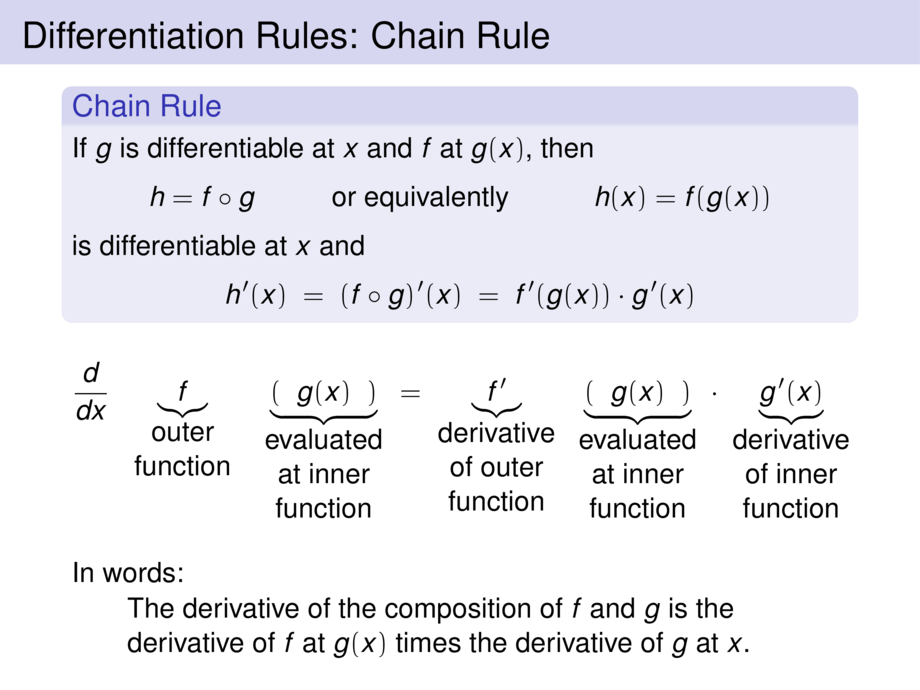



































































































106/155
\begin{frame}
\frametitle{Differentiation Rules: Chain Rule}
\begin{block}{Chain Rule}
If $g$ is differentiable at $x$ and $f$ at $g(x)$, then
\begin{talign}
h &= f \circ g &\text{or equivalently } && h(x) &= f(g(x))
\end{talign}
is differentiable at $x$ and
\begin{talign}
h'(x) \;=\; (f\circ g)'(x) \;=\; f'(g(x)) \cdot g'(x)
\end{talign}
\end{block}
\pause\vspace{-1ex}
%
\begin{talign}
\frac{d}{dx} \underbrace{f}_{\parbox{1.9cm}{\centerline{outer}\centerline{function}}}
\underbrace{(\;\;g(x)\;\;)}_{\parbox{1.9cm}{\centerline{evaluated}\centerline{at inner}\centerline{function}}}
=
\underbrace{f'}_{\parbox{1.9cm}{\centerline{derivative}\centerline{of outer}\centerline{function}}}
\underbrace{(\;\;g(x)\;\;)}_{\parbox{1.9cm}{\centerline{evaluated}\centerline{at inner}\centerline{function}}}
\cdot
\underbrace{g'(x)}_{\parbox{1.9cm}{\centerline{derivative}\centerline{of inner}\centerline{function}}}
\end{talign}
\pause\medskip
% In Leibnitz notation with $y = f(u)$ and $u = g(x)$:
% \begin{block}{}
% \begin{malign}
% \frac{dy}{dx} \;=\; \frac{dy}{du} \cdot \frac{du}{dx}
% \end{malign}
% \end{block}
% \pause\medskip
In words:
\begin{itemize}
\item [] The derivative of the composition of $f$ and $g$
is the derivative of $f$ at $g(x)$ times the derivative of $g$ at $x$.
\end{itemize}
\vspace{10cm}
\end{frame}

